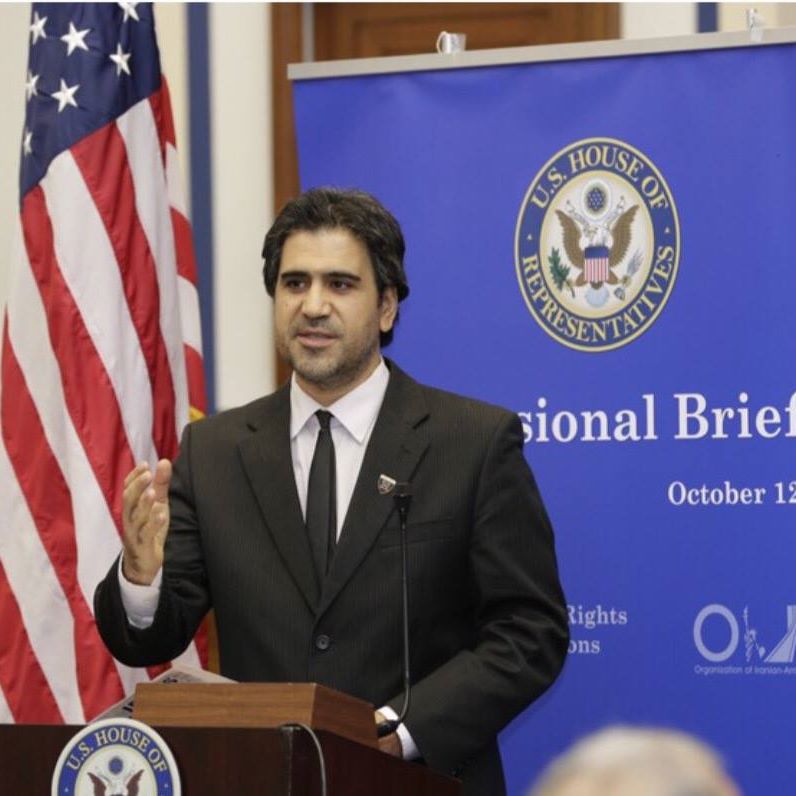Khamenei’s double game with the nuclear deal
Dr. Majid Rafizadeh/Arab News/December 28/2020
د. ماجد رافيزادا/عرب نيوز: لعبة خامنئي المزدوجة مع الاتفاق النووي
Although six world powers (the US, the UK, Russia, France, China and Germany) were parties to the Joint Comprehensive Plan of Action (JCPOA), the 2015 deal to curb Iran’s nuclear program in return for an easing of sanctions, the two major players were, and still are, Iran and the US.
That is why when US President Donald Trump pulled Washington out of the pact, it fell apart. Tehran ceased to comply with the agreement despite entreaties from the other signatories. The re-imposition of US sanctions on Iran’s energy, banking and shipping sectors hit its economy the most, as foreign corporations were reluctant to do business with Iran because of the potential repercussions.
Joe Biden has made it clear that he intends to rejoin the nuclear deal when he becomes US president. Since Iran’s Supreme Leader enjoys the final say in the country’s major foreign policy issues, his stance on the nuclear deal will determine whether the nuclear agreement can be resurrected under the Biden administration. So, what is Ayatollah Ali Khamenei’s position?
In the next few months, he will probably play a double game. In public, he will be warning the Iranian authorities not to hold negotiations with the US because Washington cannot be trusted.
Khamenei has already started his campaign of criticizing the Iranian President Hassan Rouhani and the Foreign Minister Mohammad Javad Zarif. “I did not believe in the way the JCPOA was done, and I have made this clear to the president and the foreign minister on many occasions,” he said last week.
This is a classic Machiavellian tactic employed by Iran’s Supreme Leader in order to evade accountability and responsibility when some policies fail.
He does not want to show weakness and loss. He shrewdly claims that his role as a Supreme Leader does not include “intervention in executive affairs” unless the hold on power of the Islamic Republic is in danger. “I believe the leader should not meddle in executive affairs unless there is a risk that the entirety of Revolution’s movement is endangered,” he says.
But the reality is that Iranian presidents and foreign ministers have an extremely limited amount of power overTehran’s foreign policies, all of which must be signed off by the Supreme Leader, directly or indirectly.
In addition, by publicly showing his opposition to the nuclear deal or any negotiations with the US, the 81-year-old supreme leader is attempting to establish his legacy of anti-Americanism. He wants to appeal to his hardline base and his proxies and militia groups abroad, and to show that he is consistent, resilient, and brave in opposing the “Great Satan.”
Nevertheless, beneath Khamenei’s facade lies the truth — not only does he wants to rejoin the nuclear deal, he is desperate to do so. In private, he is almost certainly instructing Rouhani and Zarif to revive the agreement when Joe takes office on Jan. 20.
Between 2013 and 2015, when Iranian officials were holding meetings with US authorities to finalize the nuclear deal, Khamenei employed the same modus operandi.
He publicly suggested that he was not favor of making deals with Americans, but Rouhani and Zarif could not, and would not, have reached such a critical international accord without the approval of the supreme leader.
Khamenei knows one of the main requirements for US sanctions to be lifted is the revival of the nuclear deal. He is extremely concerned about Iran’s fate if sanctions persist. There have been several major widespread protests against the regime in the past few years.
For the first time, people began chanting “Death to Khamenei” and demanding that he step down. People in other countries such as Lebanon and Iraq, where Tehran exerts significant influence, have also protested against Iran’s interventions in their internal affairs. The regime’s popularity in the Middle East has reached a new low.
The supreme leader is also witnessing how the sanctions have substantially cut off the flow of funds to the Islamic Revolutionary Guard Corps, and its cronies and terror groups across the region. This is why he has said: “If we can remove the sanctions, we must not delay even one hour.”
So Iran’s supreme leader is shrewdly criticizing the JCPOA in public, while in private he both needs and wants to bring it back to life.
• Dr. Majid Rafizadeh is a Harvard-educated Iranian-American political scientist. He is a leading expert on Iran and US foreign policy, a businessman and president of the International American Council. He serves on the boards of the Harvard International Review, the Harvard International Relations Council and the US-Middle East






















